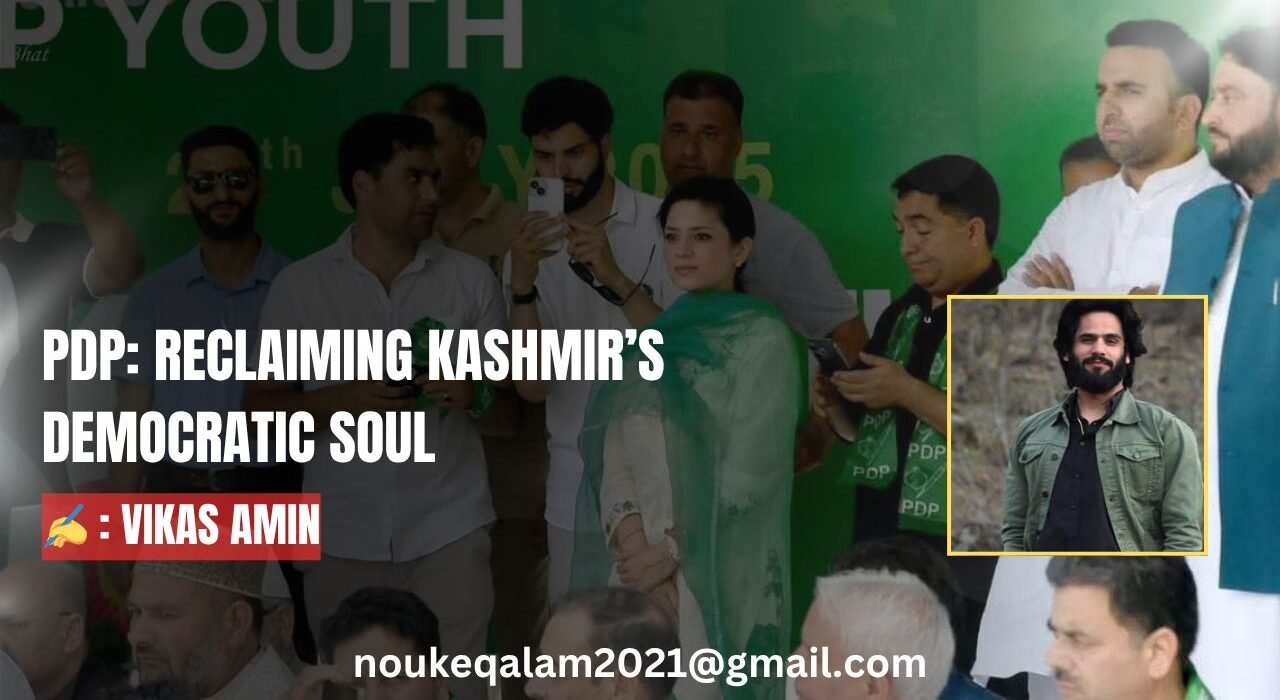After decades of alienation and the trauma of 1987 in Kashmir, when entire communities were pushed to the wall, the People’s Democratic Party (PDP) emerged as a force that created and expanded democratic space. It engaged with the alienated, opened dialogue, and offered reconciliation without erasure.
Formed in 1999, the PDP marked the first serious political attempt—after years of pain and repression—to translate dignity into governance and offer a democratic alternative to militarized dominance. PDP’s politics redefined the mainstream—not as an elite monologue but as a dialogue among alienated groups, rooted in dignity, rights, and reconciliation.
Within a few years of its formation, the PDP dismantled the brutal Ikhwan system, offered amnesty to prisoners, and reached out to religious groups, moderate separatists, and other excluded voices. For the first time in Kashmir’s political history, a party attempted to give a platform to the disillusioned and broadened the scope of mainstream politics as a space of dignity, dialogue, and democratic accommodation—especially for groups previously treated as political untouchables.
The PDP was the first real alternative to challenge the hegemonic grip of the National Conference (NC), whose legitimacy relied heavily on outdated land reform nostalgia and a shallow secularism. This version of secularism was less about inclusion and more about labeling ideologically divergent groups like Jamaat-e-Islami and MUF as communal. Rather than engaging them in democratic contestation, the NC propagated false narratives, portraying them as threats to New Delhi, thus maintaining its monopoly. From the rigging of the 1987 elections to the misuse of state institutions to crush dissent, the NC suffocated democratic space. This subversion of democracy left the people disenchanted with electoral politics and cynical about the state itself—fueling violent unrest that consumed generations.
Mufti Mohammad Sayeed’s political intervention aimed to heal these wounds and revive democratic dialogue in place of cyclical violence. This founding principle gives the PDP an enduring relevance.
In the post-Article 370 era, many political actors in Jammu & Kashmir are striving to reinvent themselves to stay relevant within the corridors of power—even at the cost of dignity. In contrast, the PDP must continue to stand for reconciliation with dignity, not silence in exchange for power.
Today, the PDP’s relevance lies not only in electoral politics but in addressing existential concerns—rights, identity, and political agency. It must strive to bridge Kashmir’s aspirations with the promises of the Indian Constitution without compromising either. Rooted in truth, reconciliation, and grassroots democracy, the PDP must reclaim its founding ideals and reestablish itself not just as a political party but as the conscience of Kashmir’s democratic spirit.
Hopefully, under the leadership of Mehbooba Mufti Ji, the PDP will continue to represent the aspirations of the people and work toward healing this wounded land.






